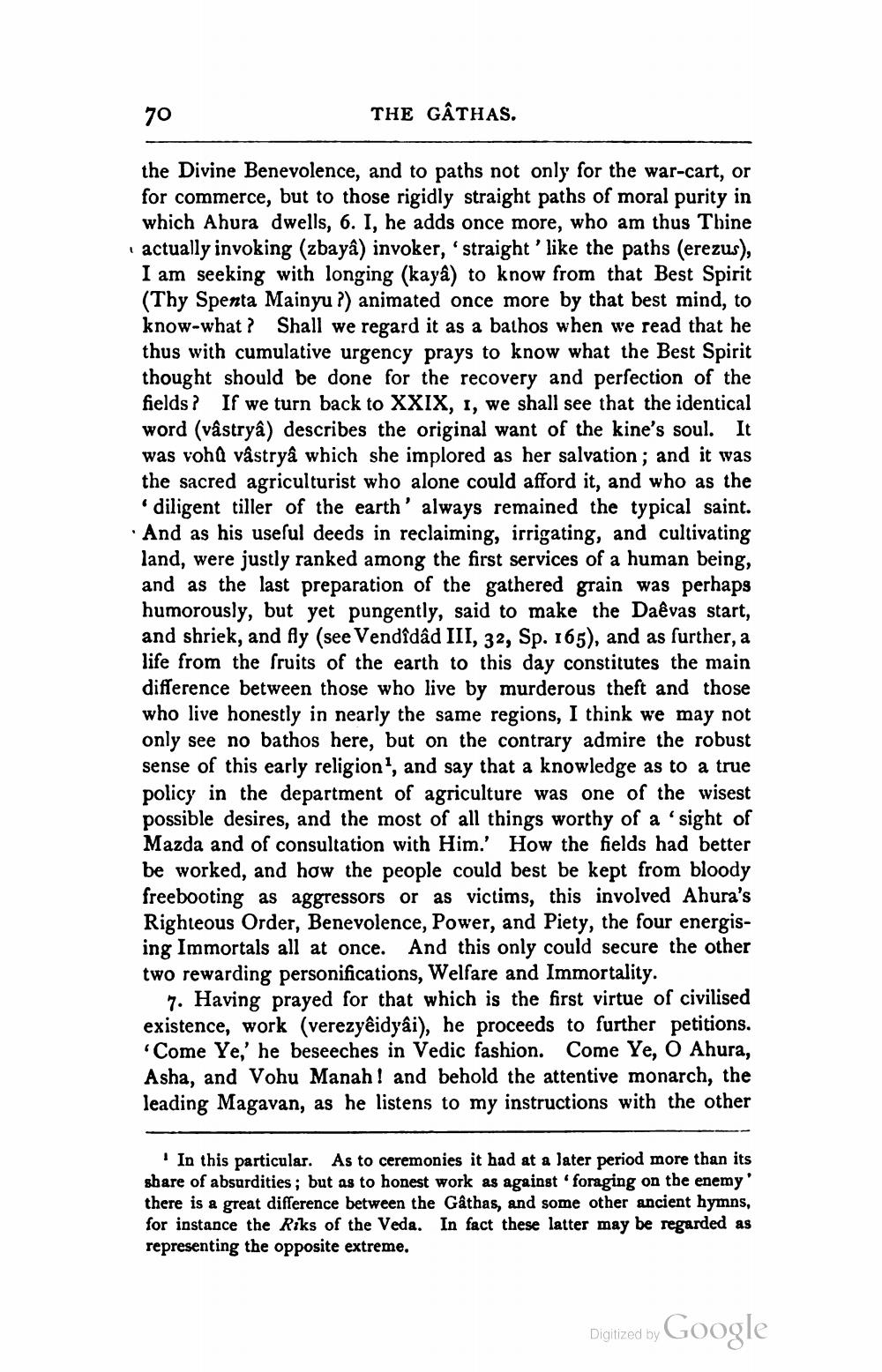________________
70
THE GÂTHAS.
the Divine Benevolence, and to paths not only for the war-cart, or for commerce, but to those rigidly straight paths of moral purity in which Ahura dwells, 6. I, he adds once more, who am thus Tbine · actually invoking (zbaya) invoker, 'straight' like the paths (erezus), I am seeking with longing (kayâ) to know from that Best Spirit (Thy Spenta Mainyu ?) animated once more by that best mind, to know-what? Shall we regard it as a bathos when we read that he thus with cumulative urgency prays to know what the Best Spirit thought should be done for the recovery and perfection of the fields? If we turn back to XXIX, 1, we shall see that the identical word (vâstryâ) describes the original want of the kine's soul. It was vohQ vâstryâ which she implored as her salvation; and it was the sacred agriculturist who alone could afford it, and who as the
diligent tiller of the earth' always remained the typical saint. · And as his useful deeds in reclaiming, irrigating, and cultivating land, were justly ranked among the first services of a human being, and as the last preparation of the gathered grain was perhaps humorously, but yet pungently, said to make the Daêvas start, and shriek, and fly (see Vendîdad III, 32, Sp. 165), and as further, a life from the fruits of the earth to this day constitutes the main difference between those who live by murderous theft and those who live honestly in nearly the same regions, I think we may not only see no bathos here, but on the contrary admire the robust sense of this early religion', and say that a knowledge as to a true policy in the department of agriculture was one of the wisest possible desires, and the most of all things worthy of a 'sight of Mazda and of consultation with Him.' How the fields had better be worked, and how the people could best be kept from bloody freebooting as aggressors or as victims, this involved Ahura's Righteous Order, Benevolence, Power, and Piety, the four energising Immortals all at once. And this only could secure the other two rewarding personifications, Welfare and Immortality.
7. Having prayed for that which is the first virtue of civilised existence, work (verezyêidyâi), he proceeds to further petitions.
Come Ye,' he beseeches in Vedic fashion. Come Ye, О Ahura, Asha, and Vohu Manah! and behold the attentive monarch, the leading Magavan, as he listens to my instructions with the other
'In this particular. As to ceremonies it had at a later period more than its share of absurdities; but as to honest work as against 'foraging on the enemy' there is a great difference between the Gathas, and some other ancient hymns, for instance the Riks of the Veda. In fact these latter may be regarded as representing the opposite extreme.
Digitized by
Digitized by Google




